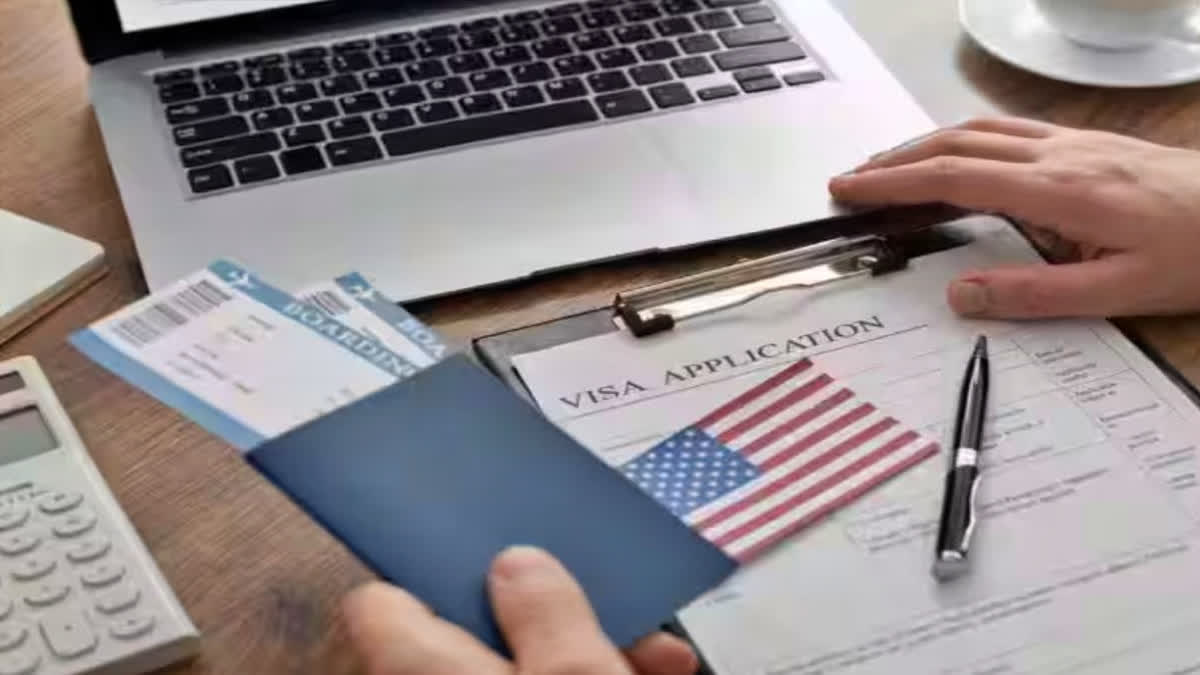Hyderabad: A group of sixteen students from Telugu origin who had recently arrived in the United States to pursue their Master's degree programs faced an unfortunate turn of events as they were deported from the country. The deportation was attributed to alleged discrepancies in their visa documentation and other prerequisites for entry, in accordance with the regulations set forth by the Student and Exchange Visitor Program.
This is not the first time that the students are deported because of discrepancies in the VISA documents but in the last few days more than 500 students – mostly from Telugu states are sent back to India from United States because the students failed to answer the basic questions asked by the U.S. Customs and Border Protection officials. Experts are of opinion that the more students are likely to shown door in the coming months because the admission session starts in August and September only.
“Certain students who arrive to study in the United States are susceptible to random inspections conducted by immigration authorities. During these random inspections, if discrepancies are discovered in the students' documents, they may face deportation, if their responses to the questions posed are inaccurate,” Dr. Raghu Korrapati, Professor, Attorney, South Carolina, USA said.
“Additionally, immigration officials scrutinize phone conversations, text messages, laptop contents, and emails. In cases where disparities arise between the information provided in the students' biodata and the documents they possess, there exists the possibility of requiring rectification or facing the prospect of being returned,” Korrapati said.
There are reasons to believe Korrapati because reports suggest that the U.S. Customs and Border Protection officials executed random checks on the students' documents and conducted a thorough review of their electronic devices, including mobile phones and laptops, as well as their social media accounts. Following these inspections, the students were instructed to return to their home country. Images circulating in social media display the students' cancelled visas and admission forms, underscoring the abrupt termination of their academic pursuits.
Experts are of opinion that Immigration officers will review F-1 visas and boarding passes for students arriving at the airports, a process referred to as the 'Port of Entry'. While not all students will be subjected to this, a subset might be asked questions such as the university they intend to enroll in, the specific course of study, and their residential address.
According to information from the American Consulate, certain students struggle to respond adequately to these questions in English. Reportedly, around half of those who are denied entry lack fundamental English language proficiency. In cases where they are unable to communicate in English, their GRE and TOEFL scores could come under the scanner.
Experts closely working with the aspiring students say that WhatsApp conversations, social media posts on platforms like Facebook and Instagram, and emails are increasingly serving as obstacles for numerous students aspiring to enter the United States. Immigration authorities are now scrutinizing social media dialogues and posts to interrogate individuals whom they find suspicious.
“For instance, queries like the feasibility of engaging in part-time employment right from the start, strategies for demonstrating sufficient funds in a bank account to cover fees, and appropriate compensation for consultancy services are all subject to investigation,” an expert said.
Experts also emphasize that engaging in discussions with friends on these topics is likely to result in deportation. Moreover, any instances of offensive posts will be treated with utmost seriousness.
"It's impractical to interrogate and inspect every immigration official. Instead, they select certain individuals for more detailed scrutiny, having them remain in designated areas where their phones and laptops are examined,” recounted a Telugu student who is currently in the fourth semester of their MS program in California.
“In a bid to ascertain the authenticity of their documents, they employ an intimidating approach by posing questions like, 'Are these certificates counterfeit?' If the individuals admit to the falsehood, they are repatriated; if not, they are subjected to threats of imprisonment," the student said.
Mandatory precautions to be taken by the students vying to study in United States:
- No false documents should be submitted for visa grant
- Do not work illegally in the US. Chatting on such things should not be done
- Hateful and provocative posts should not be posted on social media
- You should know the complete details about the university and the course you are studying
- There should be clarity on the topic of where and with whom you will be while studying
- Where do you get the money required for tuition fees and other expenses?
- If taking a bank loan, those documents should be kept close
- Fill in the details for I-20 on your own instead of relying entirely on consultancies. It increases the awareness of the students to a great extent



